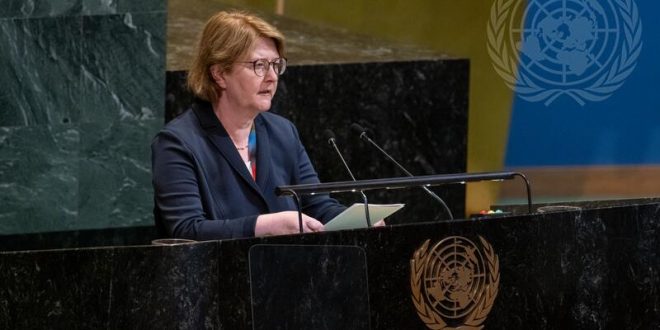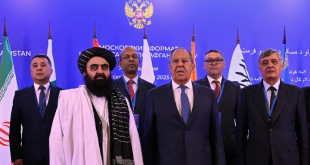KABUL — The United States has issued a forceful condemnation of a new United Nations General Assembly resolution on Afghanistan, accusing the international community of rewarding the Taliban for nearly four years of broken promises and deepening repression. Passed overwhelmingly on July 7 with 116 votes in favor, the resolution urges continued diplomatic engagement with the Taliban regime, despite its ongoing restrictions on women’s rights, refusal to combat terrorism effectively, and failure to meet even minimal international expectations. The U.S., along with Israel—the only two countries to vote against the measure—warned that the resolution risks legitimizing a regime that continues to erase women from public life, silence dissent, and allow extremist networks to flourish.
U.S. representative Jonathan Shrier blasted the resolution as dangerously misguided, arguing that years of dialogue with Taliban leaders have brought no tangible improvements. “We are rewarding the Taliban’s failure with more engagement and more resources,” Shrier told the Assembly. “That’s not diplomacy—it’s appeasement.” He emphasized that nearly four years after the group’s return to power in August 2021, the Taliban remain entirely unaccountable for the humanitarian and rights crises they’ve caused. Washington, he said, refuses to be complicit in a process that enables tyranny while offering nothing in return.
The U.S. also strongly objected to language in the resolution praising countries like Iran and Pakistan for hosting Afghan refugees. Shrier accused Iran of executing Afghan refugees “at an alarming rate without due process” and forcibly conscripting others into militias. He stressed that recognition or praise for such behavior undermines the UN’s own values and hands impunity to abusive states.
For many in Western capitals, the U.S. stance reflects growing unease over what is seen as a softening international posture toward the Taliban. Women and girls in Afghanistan are still banned from secondary school, barred from most jobs, and excluded from nearly all aspects of public life. UN Secretary-General António Guterres has described this as “gender apartheid,” and human rights groups say the situation is among the worst in the world. Despite this, the resolution passed with broad support and was co-sponsored by a group of nations that argue continued engagement is the only realistic path forward.
But the U.S. is drawing a line. Shrier argued that engagement without enforceable conditions—such as reopening schools for girls or halting arbitrary detentions—strips the international community of leverage and simply reinforces the Taliban’s hold on power. “This resolution lacks teeth. It lacks accountability. And it lacks moral clarity,” he said. “The United States spent decades supporting the Afghan people with time, resources, and American lives. It’s time for the Taliban to step up. We will not reward repression with legitimacy.”
Although non-binding, the resolution helps shape how UN agencies, donors, and diplomats interact with Afghanistan’s de facto authorities. The U.S. is expected to push for a parallel strategy focused on conditional aid, sanctions enforcement, and support for Afghan civil society—without extending recognition to the Taliban. American officials say their approach is not about isolation but about consequences, and that any future dialogue must come with clear, measurable benchmarks.
As global interest in Afghanistan wanes and some countries explore normalizing ties with the Taliban—Russia has already formally recognized the group—the U.S. is sending a stark message: the price of reengagement must not be silence in the face of oppression. “This is not about abandoning Afghans,” Shrier concluded. “It’s about refusing to empower the people who are destroying their futures.”
Ask ChatGPT
 Afghanistan Times Latest News and Analysis from Afghanistan and the Region
Afghanistan Times Latest News and Analysis from Afghanistan and the Region




